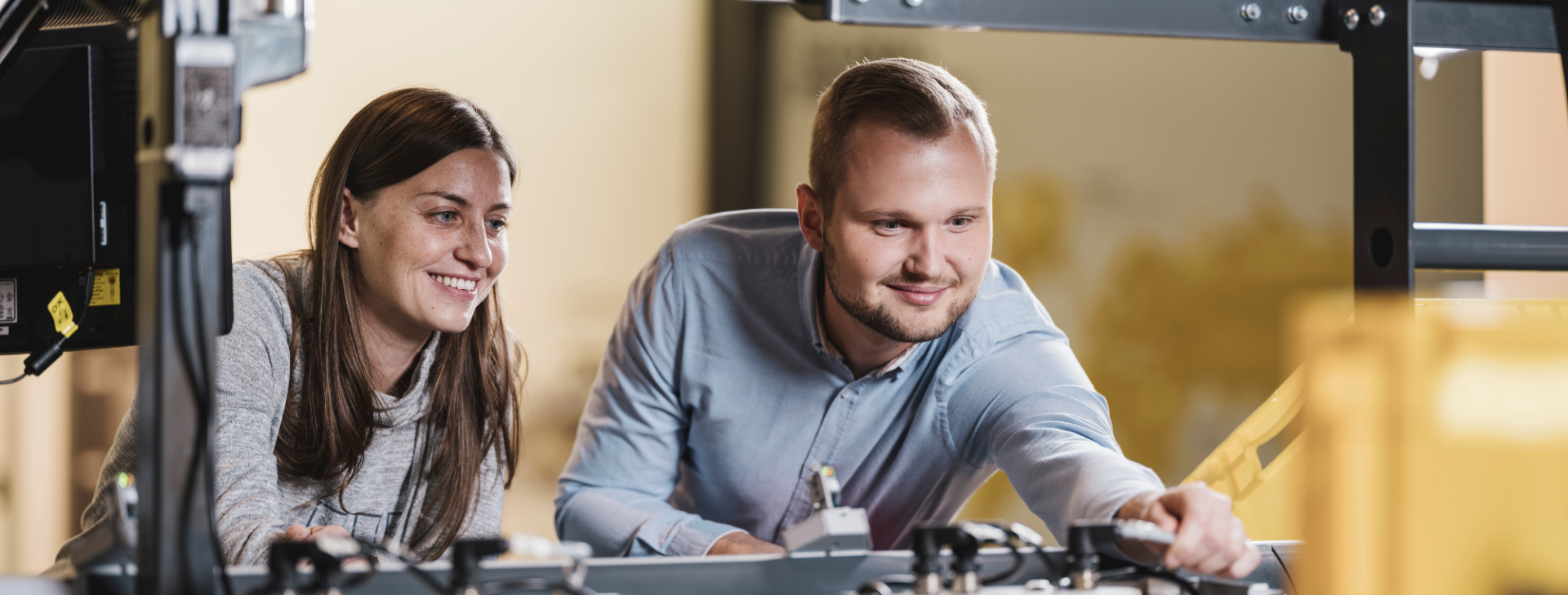
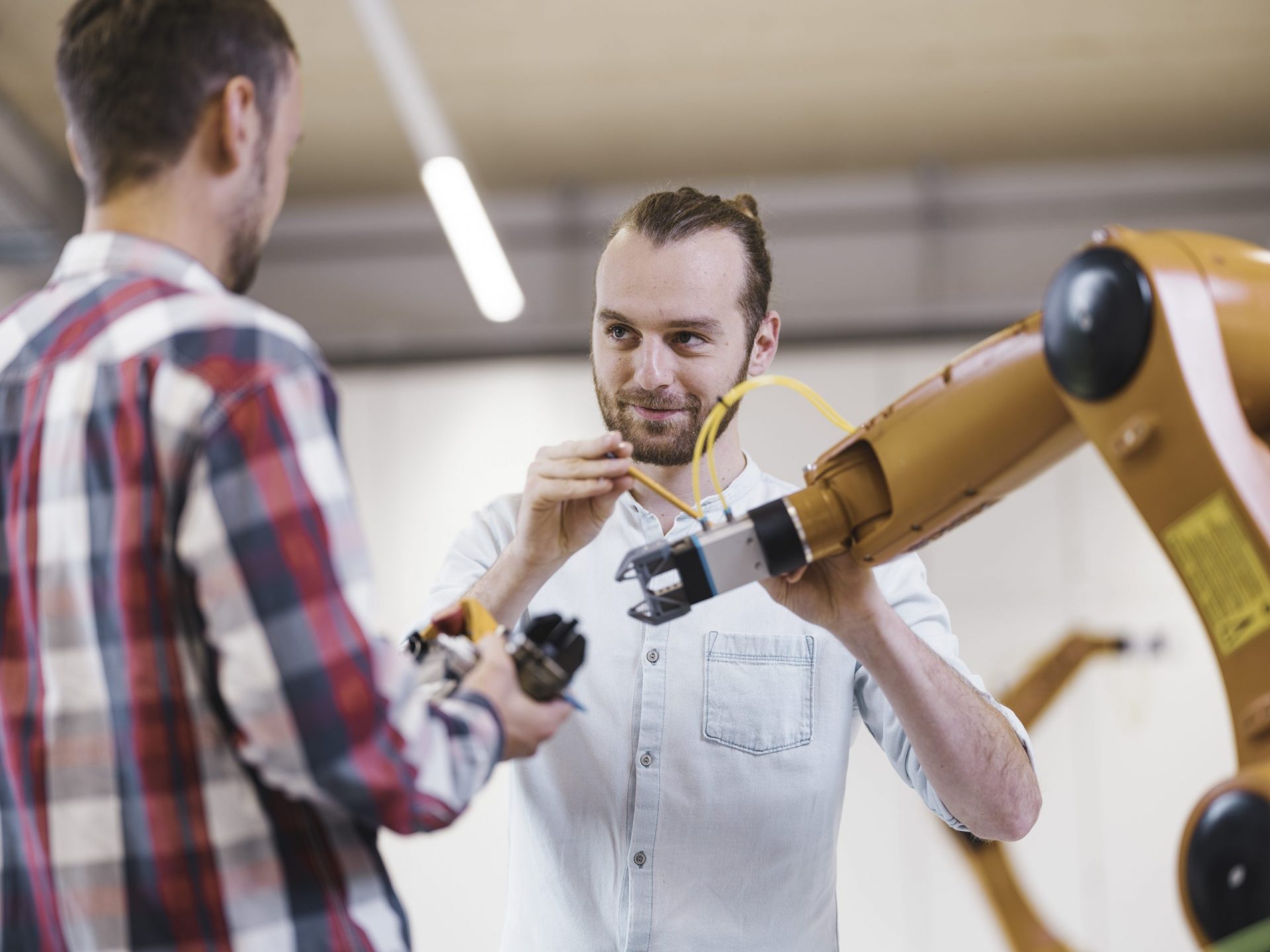
Covering 180 m², the robotics area is equipped with various state-of-the-art modular system components, available for both scientific and industrial applications, and is further enhanced by virtual reality technologies. A dedicated section for the manufacturing of prototypes allows for the seamless creation of prototypes and testing environments all under one roof.
In product, process, and system development, the digital twin in its various forms and virtual commissioning, alongside state-of-the-art methods, serve to enhance efficiency and improve the quality of solutions, as well as shorten the development time to the physical functional prototype. Additionally, modern methods can be used to safeguard the development process itself. The entire product, system, and process development is carried out in the context of the Digital Factory. By employing virtual reality (VR) and augmented reality (AR) methods, we create interactive virtual environments, such as laboratory spaces and presentation rooms, which are used for training purposes and to provide a realistic experience of virtual project outcomes. Furthermore, virtual content is linked with real-world data in real-time, significantly expanding the range of applications through bidirectional data exchange. Layout planning, ergonomics checks, and functional design complete the applications of VR.
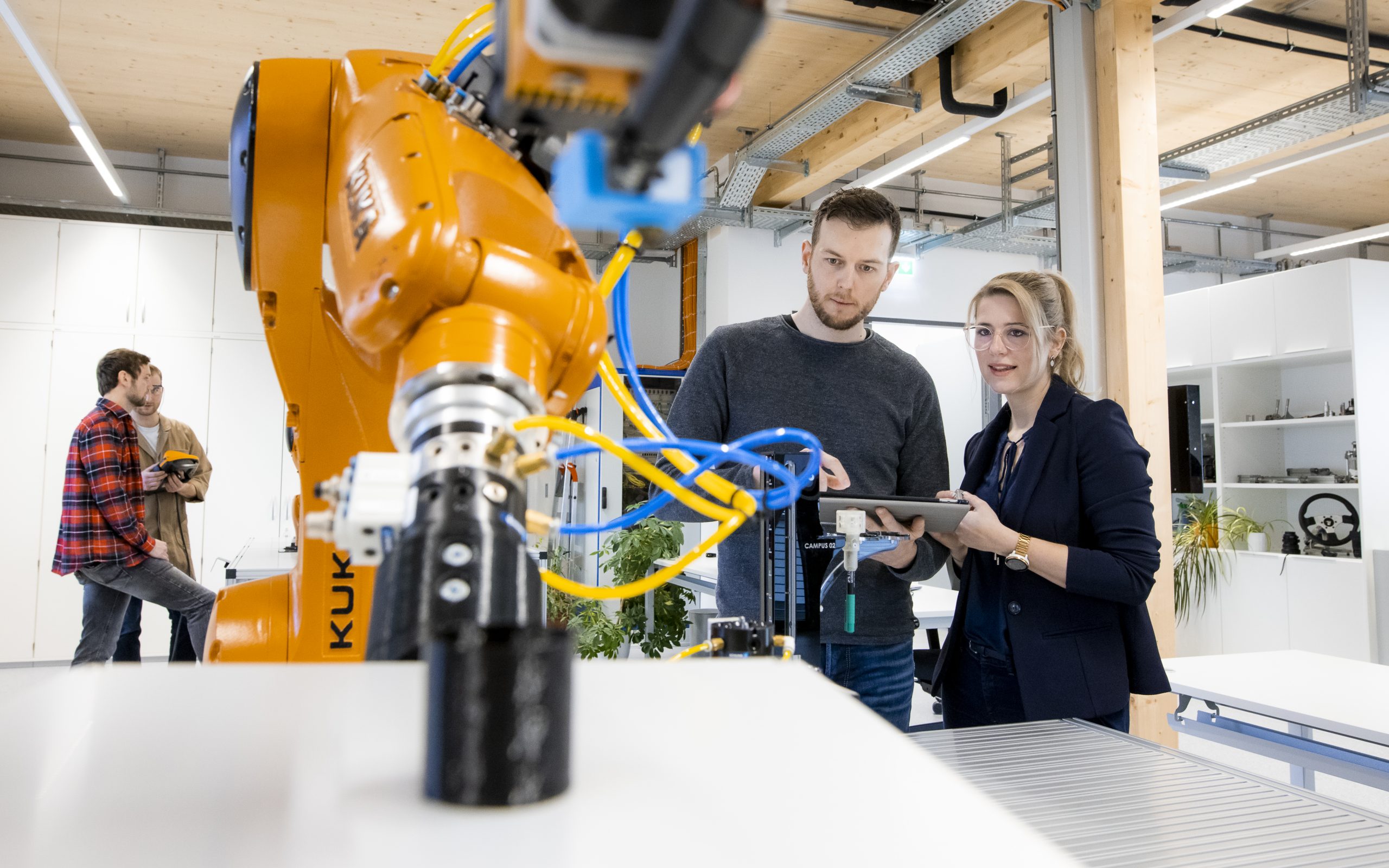
With this range of services and our other expertise in the fields of electronics and IT, we successfully support companies in their further development in various dimensions.
Product, process and system development in the field of handling technology offers great potential for increasing competitiveness through:
If you are interested but unsure about which form of automation might improve your handling processes, or if you are uncertain whether modern solutions are feasible and beneficial for your area, or if you need support with 3D modeling and design, or simply want to test your ideas in a virtual environment, please do not hesitate to contact us.
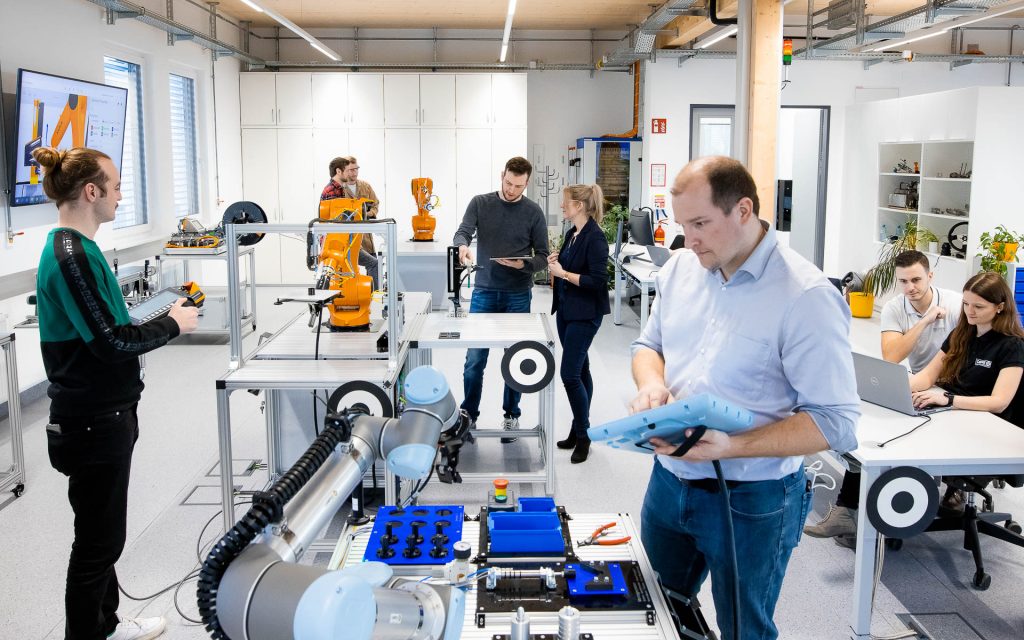
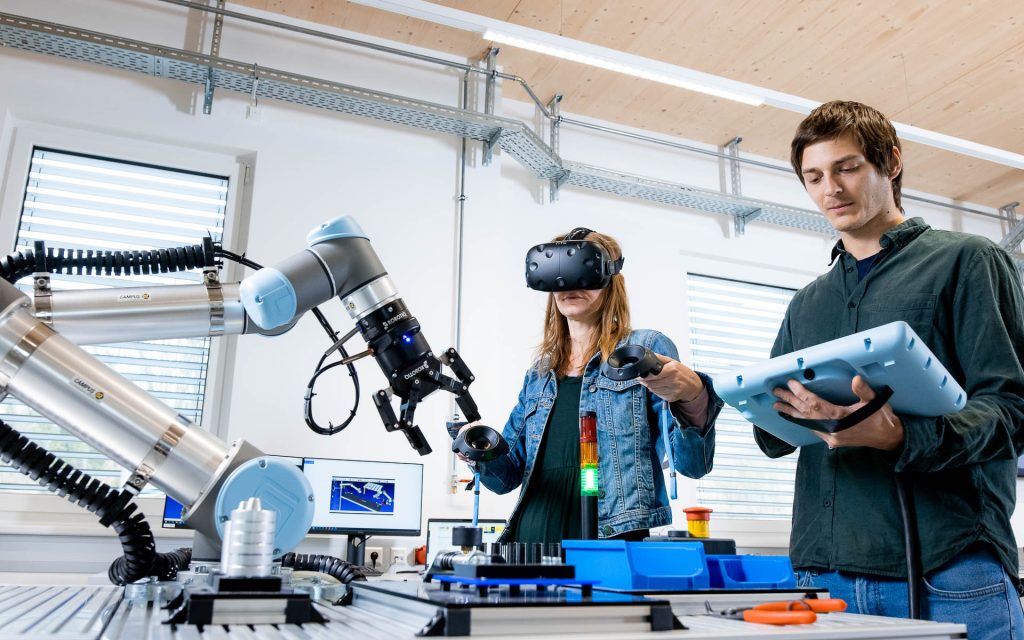
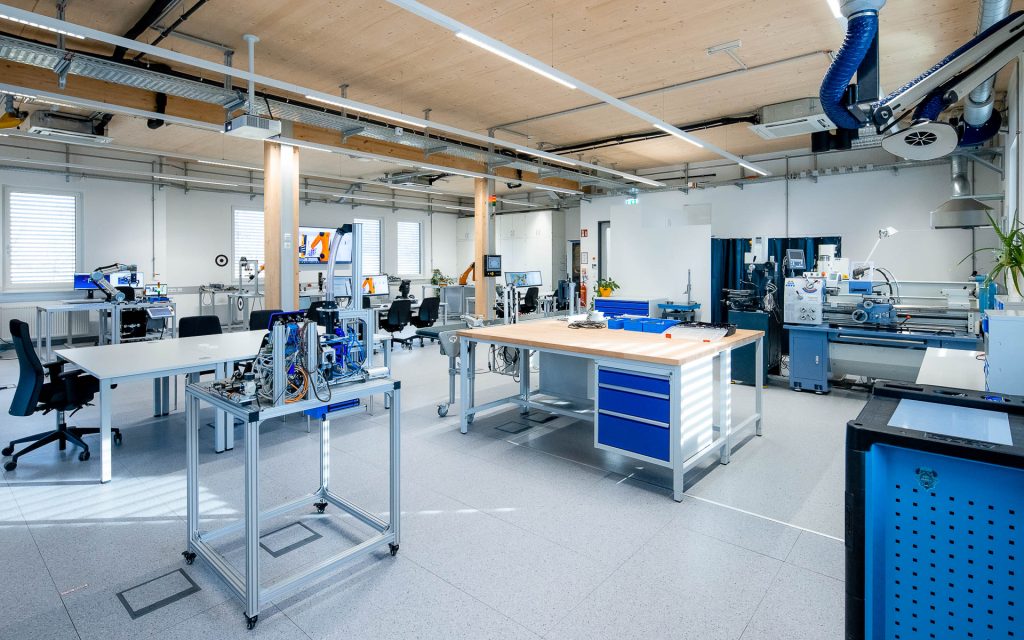
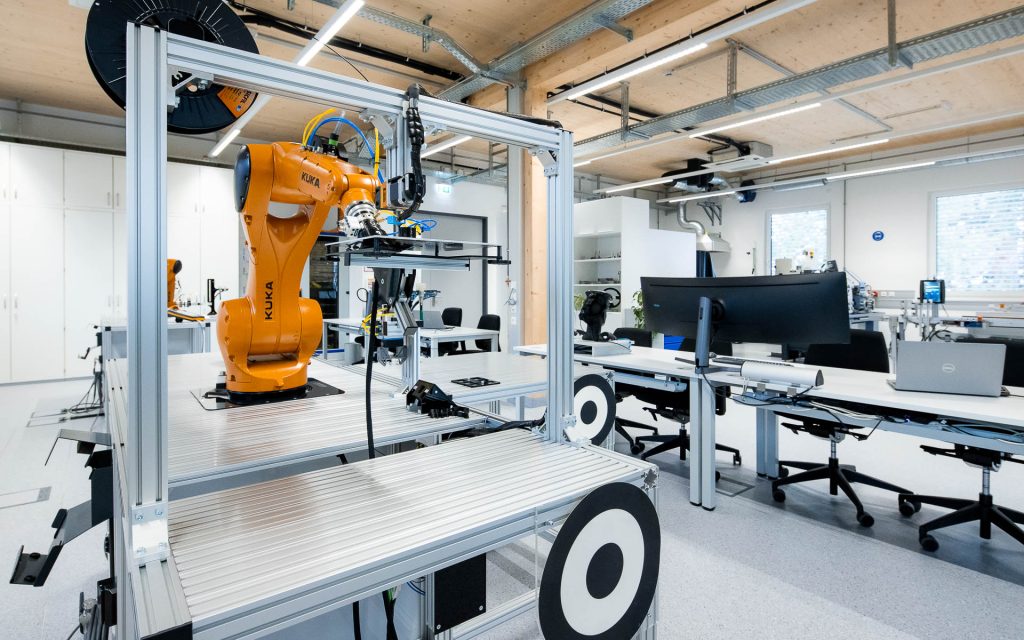

CAMPUS 02 University of Applied Sciences
Department Automation Technology
Körblergasse 126, 8010 Graz